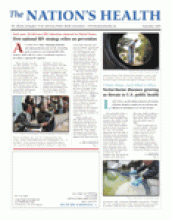When deciding whether to require post-marketing studies of approved drugs, the U.S. Food and Drug Administration should follow an ethical framework to ensure study participants fully understand health risks, according to a recent Institute of Medicine report.
The report, released in early July just as safety concerns were halting studies of the diabetes drug Avandia because of links to severe heart risks, also said FDA officials should make sure the post-marketing studies themselves are ethically conducted.
“Particularly in research settings in which participants have low literacy, low income and poor access to modern health care and medicines, even a robust consent process may do little to countervail the pressures that lead people to participate in research,” according to the report, which was authored by the IoM Committee on Ethical and Scientific Issues in Studying the Safety of Approved Drugs.
The report came in response to a request by FDA Commissioner Margaret Hamburg, MD, for a study on scientific and ethical issues involved in post-marketing drug safety research. Hamburg’s request to the IoM was part of FDA’s response to a critical Senate Finance Committee report, released in February, on the safety of Avandia, a brand name drug for the type 2 diabetes medication rosiglitazone.
So-called “black box” warnings on drug packaging have come under scrutiny in recent years, including those advising that certain antidepressants may up the risk for suicide. In mid-July, an FDA panel voted to add cardiovascular risk factors to Avandia’s label. One question is whether drugs requiring such strong warnings should be on the market at all.
On July 22, GlaxoSmithKline suspended enrollment of new patients into an Avandia post-marketing trial at FDA’s request. The trial compared the cardiovascular safety of Avandia and the drug Actos in patients with type 2 diabetes.
The IoM report said during the informed consent process prior to drug research studies, the emphasis placed on risk information should rise both with the severity of risk and with how much certainty exists about how the drug causes the adverse outcome, which in the case of Avandia is congestive heart failure and heart attack.
“At a minimum, risks that should be disclosed should include any black box warnings, the ’major statement’ currently listed in television advertisements, any adverse event findings of an FDA advisory committee, and a summary of evidence from published peer-reviewed studies,” according to the IoM report.
The report recommended that, in addition to verbal disclosures and written consent documents, potential study participants should have access to additional tools such as videos and interactive electronic presentations to make possible risks clear.
“Whatever efforts are employed to communicate with potential participants, it is key that they include information that is useful to participants about where the weight of the evidence falls with regard to serious risks and the level of confidence that experts have in drawing conclusions about the risks,” according to the report. “A statement that ’some studies have found that the drug causes X, whereas others have not’ may be true, but misleading if nearly all well-designed studies have reached the same conclusion and there is little or no reliable evidence on the other side.”
The IoM report did not delve into the specifics of the Avandia case or go in depth about issues related to the ethical and scientific justifications of clinical trials. The authoring committee is scheduled to issue a final, more comprehensive report in 2011.
The “Ethical Issues in Studying the Safety of Approved Drugs: A Letter Report” is online at www.nas.edu.
- Copyright The Nation’s Health, American Public Health Association












